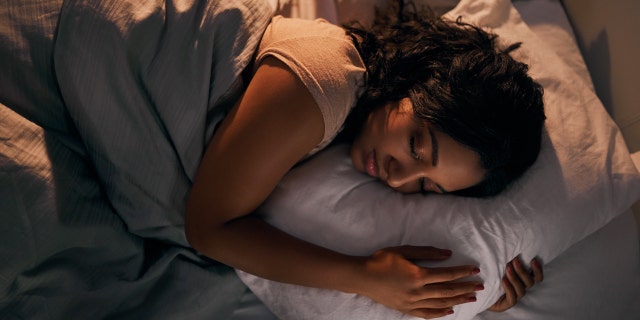More Americans are using melatonin supplements to get to sleep, according to a team of international researchers.
In a study published Tuesday in the Journal of the American Medical Association (JAMA), authors from Beijing's Dongzhimen Hospital and Xiyuan Hospital and Minnesota's Mayo Clinic said the reported prevalence of melatonin supplement consumption rose significantly from 1999-2000 to 2017-2018 across all demographic use.
Additionally, the team wrote that – although remaining "very low" – the prevalence of self-reported use of greater than 5 milligrams per day also increased over time.
INSOMNIA IN THE TIME OF COVID: HERE'S HOW YOU CAN SLEEP THROUGH THE NIGHT
"These estimates may raise safety concerns, especially given that the actual content of melatonin in marketed supplements may be up to 478% higher than the labeled content and that evidence supporting melatonin use for sleep disturbances is weak," they noted.
To reach these conclusions, they examined reported prevalence and trends, evaluating those in use of melatonin dosage greater than 5 mg per day.
Using data from the 1999-2000 through 2017-2018 cycles of the National Health and Nutrition Examination Survey (NHANES), the authors looked at melatonin use in more than 55,000 adults over the age of 20 across all demographic groups.

(iStock)
Data on dietary supplement use over the past 30 days and daily dose used when taking the supplements were collected through in-home interviews and study participants were required to show supplement containers.
The overall reported consumption of melatonin rose from 0.4% in 1999-2000 to 2.1% in 2017-2018, with an increase beginning in 2009-2010.
The researchers added that the growing use of exogenous melatonin in the general population and its expanding therapeutic potential are reasons for the acquisition of "robust evidence of long-term safety of melatonin supplementation."
Trends were found to be similar across sex and age groups and melatonin use of greater than 5 mg per day was not reported before 2005-2006.
VIRAL TIKTOK SHOWS MILITARY TECHNIQUE FOR FALLING ASLEEP IN 2 MINUTES
Limitations to the study include the small number of melatonin users in some subgroups; that reliable estimates of trends in melatonin use across racial and ethnic groups cannot be provided, that reasons for use were not available in all cycles and that melatonin use was self-reported – even though supplement containers were verified in nearly all participants.
According to the Centers for Disease Control and Prevention, melatonin is a neurohormone produced by the pineal gland that is known to organize the body’s circadian rhythm and help promote sleep.
The agency notes that melatonin as a nutritional supplement is not regulated by the Food and Drug Administration (FDA) and that "some experts have expressed concern about the melatonin products sold in the United States."
"In addition, two expert sleep panels have published cautions about the use of melatonin to promote adjustment to shift work, stating that more research is needed in this area," it said, noting that melatonin "must be taken at the right time" lest it "shift the circadian clock in the wrong direction or have no effect."
The National Institutes of Health's National Center for Complementary and Integrative Health says being exposed to light can block melatonin production and that the hormone's other roles in the body are not fully understood.
The center wrote that there is "not enough information yet about possible side effects" to have a clear picture of its overall safety, highlighting that information on the supplement's "long-term safety" is "lacking."
Citing a 2017 study, the center noted that some melatonin supplements may not contain what's listed on the product label and that it is "regulated less strictly" by the FDA than a prescription or over-the-counter drug would be.
CLICK HERE TO GET THE FOX NEWS APP
The 2015 guidelines by the American Academy of Sleep Medicine recommend against melatonin use by people with dementia, and there's been a "lack of research" on the safety of melatonin use in pregnant or breastfeeding women, it continued.
According to Mayo Clinic, melatonin taken orally in appropriate amounts is generally safe, but can cause side effects including headache, dizziness, nausea, drowsiness and – though less common – short-lasting feelings of depression, mild tremor, mild anxiety, abdominal cramps, irritability, reduced alertness and confusion or disorientation.
The clinic instructed people not to take melatonin if they have an autoimmune disease.
Health - Latest - Google News
February 02, 2022 at 10:51PM
https://ift.tt/5AV1jFPci
More US adults taking melatonin to fall asleep, study says - Fox News
Health - Latest - Google News
https://ift.tt/CJZdnhWOU
Bagikan Berita Ini














0 Response to "More US adults taking melatonin to fall asleep, study says - Fox News"
Post a Comment